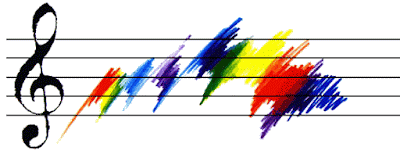The Appeal of Hallucinogens
 |
| From https://www.theodysseyonline.com/synesthesia-hear-colors |
In a lab, a rat that is given a hallucinogen will not return to it the same way it would with most other drugs that humans use recreationally. One explanation is that these drugs are simply not addictive and so the animals sees no point in pursuing it. But this does nothing to explain why humans actively seek out hallucinogens, and why we are the only species that appears to want to use them over and over again. Why does the same substance that repels other animals attract us?
The experience of hallucinogens is often compared to synesthesia, a rare condition that Ackerman describes in her final chapter. People with synesthesia experience their senses differently. Some can see sounds, or hear tastes, or have their senses mixed up in some other way. It does not seem to be a coincidence that many people with synesthesia become artists. Similarly, many artists seem to enjoy hallucinogens. Aldous Huxley, for example, was fond of the hallucinogen mescaline to the point that he thought the Christian church should use it as a sacrament. Perhaps the altering (or muddling, depending on who you ask) of our senses encourages creativity, and that explains why we are so fascinated by both synesthesia and hallucinations. Perhaps this active pursuit of creativity is what sets us apart from other species.
Another possible explanation for the appeal of hallucinogens is that animals simply do not get the chance to prepare for what they are about to experience. Maybe if humans were given LSD without giving consent we would all hate it, too. That element of agency could make all the difference. The appeal of hallucinogens therefore is not in the altering of the senses, but rather in the control of them. We think that if we can choose to alter our perception then that is a form of control, but we can never really control what our senses tell us. The real illusion is not the hallucinations, but rather the idea that we are the masters of our senses when the reality is quite the opposite.

Comments
Post a Comment